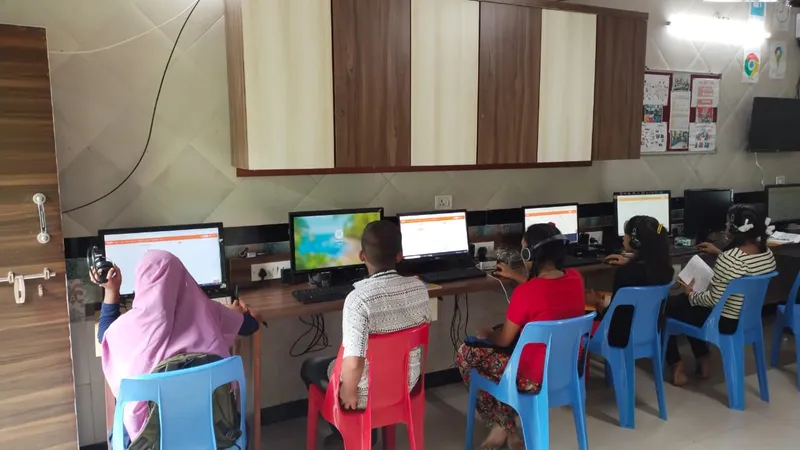From rescuing cows to addressing food security through gene editing, here are this week's top social stories
This week, SocialStory looked at the journey of a tobacco addict, food security through the gene editing mechanism, and a few other stories of social impact.
SocialStory started off the new year with some interesting and impactful stories, focusing on some crucial topics.
We interacted with edtech startup Vedantu to discuss its educational initiative 'Help India Learn' aimed at helping underprivileged children learn. Meanwhile, 58-year-old Atul Sarin spoke to us on why he left his business life in the UK and decided to rescue and look after cows in Goa.
SocialStory also looked at topics such gene editing and sustainability among other stories this week.
This 58-year-old man left behind his successful business life in the UK to rescue cows in Goa
A decade ago, when 41-year-old Atul Sarin settled in Goa, he saw many cows wandering the streets and felt sorry for them. One of them was a three-legged malnourished cow that was causing traffic jams. Atul decided to rescue it and took it to his garden where he could look after it.

Atul with the cows
Soon, people approached Atul to ask for his help in rescuing other cows in distress. Many of them were beaten, suffered acid attacks, got injured, were malnourished, and have even had to drink contaminated water.
By the end of 2001, Atul was taking care of five injured cows in his garden. He decided to register a trust to better organise his efforts and in 2005, set up Welfare for Animals in Goa (WAG) to rescue and rehabilitate as many cows and other animals as possible.
Gene editing crucial for food security and a sustainable future
The growing world population is creating an array of challenges for food security. Fast-shrinking green cover to make ways for agriculture production has raised concerns in the wake of climate change showing its effects.

There needs to be a viable and sustainable mechanism that ensures adequate food production as well as reduces the stress on the ecosystem.
We need to look for advancements in plant breeding that can support sustainability. Through various research conducted by scientists across the globe, gene editing technology has proven its usefulness in helping farmers conserve water, reduce crop inputs, and ensure optimum and even higher crop output.
Gene editing is most efficient since a precise tweak to a living organism’s existing DNA can be made. There is no addition of foreign material. Moreover, the tweaks are indistinguishable from naturally occurring mutations.
How Vedantu plans to help 15K COVID-affected students through its Help India Learn initiative
Edtech startup launched the initiative Help India Learn in May 2021, at the peak of the second COVID wave in the country. At the time, it allocated over Rs 15 crore under this initiative to assist nearly 15,000 impacted children with continuing their education and academic progress.

Students using Vedantu with collaboration with NGO Dharma Bharti Mission (DBM)
Vedantu believes education is the only way to create a level playing field for children of the country and beyond.
Vedantu's objective through the Help India Learn initiative is to assist students who are unable to access for-profit edtech due to financial constraints or a digital divide.
Through this initiative, the startup aims to reach out to young ones directly impacted by the pandemic by providing emergency food and medical assistance along with a long-term academic mentorship. By adopting these children academically, the startup aims to make sure their learning never stops.
[Survivor Series] I started consuming tobacco at 16, without realising the side effects
This week, we bring you the story of a 32-year-old former tobacco addict who was able to overcome the addiction with timely intervention, counselling, and guidance.

I, AU (name changed), 32-years-old, had visited a tertiary care hospital in Mumbai with the complaint of chest pain.
I have been a tobacco addict and whenever I tried to quit tobacco, my hand used to shiver continuously. I started tobacco consumption at the age of 16, when I used to have it with lime mixture, approximately 20 times a day and also Mawa (a type of smokeless tobacco product) twice a day. I was also addicted to tea and my tea consumption was also 20 cups in a day.
Edited by Teja Lele






